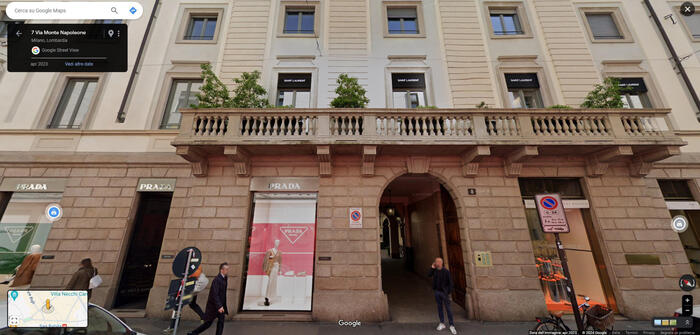column
It's been 18 years since I sat in the mathematics lecture hall at the TU Berlin to hear a talk by Sven Giegold. Giegold, a founding member of the German section of Attac, explained Tobin Tax's goals: to finally limit risky financial transactions and then use the money to build railroads and schools. Giegold made it clear how beneficial this idea, conceived in the 1970s by the liberal American economist James Tobin, could be.
The name of Giegold's organization was the program, because "Attac" stands for " a ssociation pour une t axation des t ransactions financières pour l ' a ide aux c itoyens", association for the taxation of financial transactions to help citizens) , The title of the Attac congress: "Another world is possible".
For the next few years, Tobin's financial market tax remained calm, while Attac grew and prospered in Germany - even the now deceased CDU general secretary Heiner Geißler joined the network.
It was only with the financial crisis from 2007 that it became gradually clear how dangerous unregulated financial markets are for the well-being of all of us. The idea of financial tax gained momentum.
Finally, in 2011, the EU Commission presented a draft that would bring in more than 50 billion euros a year in the EU and thus cover part of the costs of the financial crisis: "So that the financial sector also makes its fair contribution." The EU Commission pointed out that the low-taxed financial sector was supported with 4.6 trillion euros in those years of crisis - can be found online in the EU document.
Fast trading in securities of any kind should be taxed: high-frequency trading, day trading and derivatives trading. Investors had just lost tens of billions on the stock market and blamed stock market gamblers for these losses. States spent hundreds of billions on bad paper to save (supposedly important) banks.
If Sparkasse was on it, Lehman was in it
The case of tens of thousands of Commerzbank and Sparkasse customers, to whom resourceful sellers had sold certificates as a safe investment, has become particularly well known. Anyone who owned Lehman Brothers' certificates had completely lost their money.
But like so many other regulatory ideas from the financial crisis, the tax fizzled. This was ensured by the massive lobbying by banks and other financial institutions. Important countries such as Great Britain and Sweden, Luxembourg and the Netherlands crossed out. The British, for example, said they already had a 0.5 percent tax on shares and wanted to protect their London financial center.
For two years now, the Federal Government, together with Federal Finance Minister Olaf Scholz, has been the driver of the project; meanwhile the Tobin Tax operates as a financial market transaction tax. With France's liberal president Emmanuel Macron and a coalition of the willing, Scholz still wants to bring the project to its goal. The Groko coalition agreement states: "We want to complete the introduction of a substantial financial transaction tax."
But it takes revenge that the project has been delayed for so long. The Brexit crumbled political support. On the one hand, they shied away from giving the British, who are so dependent on the financial industry, another reason for Brexit. On the other hand, hopes grew in France, Spain and Germany to lure part of the financial industry that was fleeing Brexit to its financial centers.
The original idea is reversed
Thus the political idea of tax mutated into an instrument with which one can collect money from small shareholders, fund investors and pensioners; High-frequency traders, day traders and derivatives booths, on the other hand, remain unscathed. Macron had already stepped into the breach for derivatives dealers in summer 2017. France had introduced a tax only on shares years ago and spared the large derivatives trading of large French banks.
The original idea of the financial market transaction tax has been turned into its opposite. Actually desired behavior is punished by the government according to this plan. At the same time, however, all particularly risky financial market transactions, i.e. those with certificates and derivatives, as well as high-speed trading and gambling with the shares of small companies, are excluded from the levy.
To top it all off, Scholz discussed this tax to finance the basic pension. If it is up to him, the prospective retirees who provide will cross-subsidize the retirees who cannot provide. Generational, so to speak.
What does all this mean for you as a saver? The best thing would be to become politically active:
- Call your MP and make him aware of the crazy idea. Perhaps you can help prevent MPs from losing political capital and you losing a (small) part of your pension.
- Second, the planned tax should not prevent anyone from continuing the smart path of retirement provision with stocks and funds. While the amount of tax now envisaged is a nuisance, it will not negate the long-term benefits of, for example, an equity index fund over zero interest on government bonds and expensive insurance products.
Two examples of the unnecessary costs for insurance and equity investment:
- A pension insurance guarantees you a 0.9 percent return per year in old-age provision, but only after costs. For many contracts, this means that you are guaranteed to see a return after 20 years. There are also surpluses from the insurance company's own investment success, but these are not guaranteed. This year, insurers have achieved 2.5 percent return on costs - and the trend is falling. Finanztip has used investments in international equity index funds for comparison for 15 years or more. There have been no losses in any 15-year period since 1975 - and an average return of over 7 percent.
- Or take a closer look at the costs for funds: A managed equity fund costs you a 1.5 to 2 percent management fee every year. A global ETF costs you a 0.4 percent annual fee. The new financial transaction tax costs 0.2 percent each time the shares are purchased.
In conclusion: Perhaps the political anger about the snap idea is also a reason to deal more intensively with the question of what role equity funds can play for your retirement provision. Then she would have had something good.














